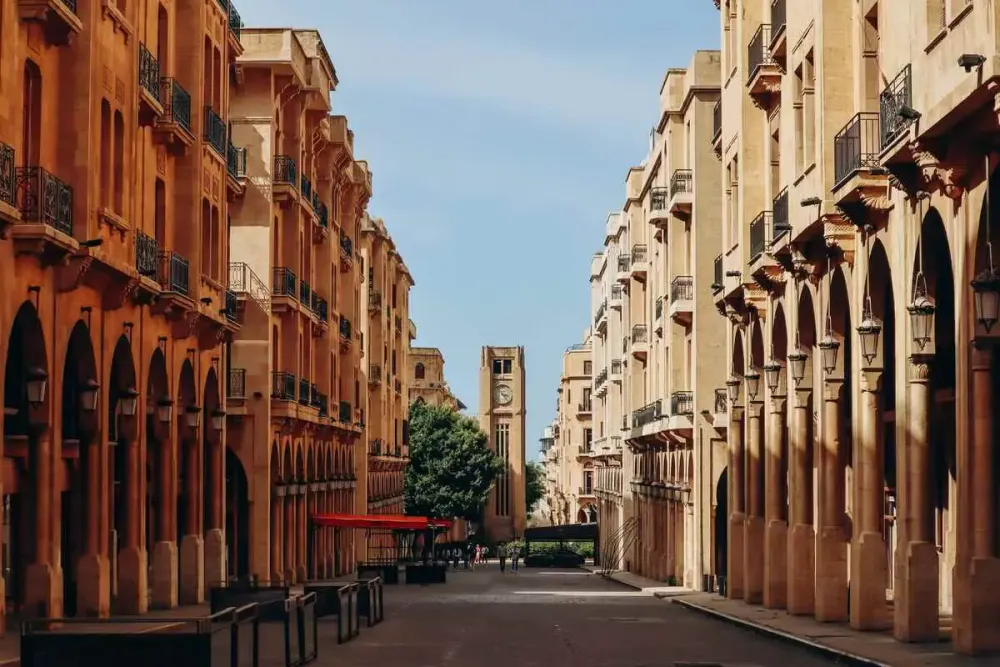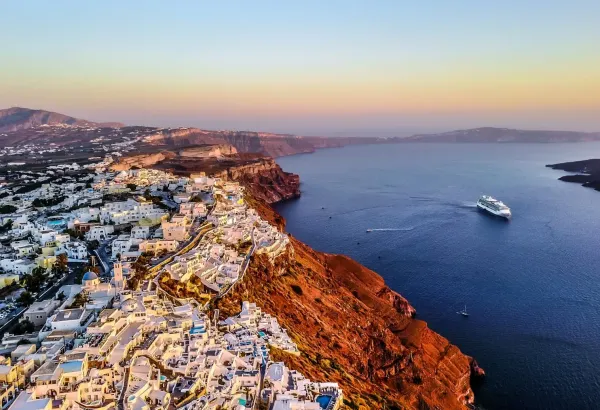Lebanon is experiencing a tourism boom
It could easily be mistaken for any luxury spot on the Mediterranean. The four-hour flight from Dubai, a major financial hub in the region, can cost around $1,000 each way. Vacationers spend over $450 on hotel rooms and $100 on grilled fish dishes. Day-passes to beach clubs can be as much as a quarter of the locals' monthly minimum wage, yet the clubs are always packed. When someone called a popular place for a last-minute reservation in July, the amused receptionist asked if they meant July 2024.
However, this isn't the French Riviera or Mykonos. This is Lebanon, a country grappling with one of the worst economic depressions in modern history. Since 2019, the local currency has lost 98% of its value, and GDP has dropped by 40%. Annual inflation has remained above 100% since July 2020. The country is currently seeking a $3 billion bailout from the IMF.
Despite these challenges, Skybar, a beloved nightclub in Beirut, reopened this summer after a three-year break. Partygoers enjoy exotic cocktails and dance all night on a rooftop lit with neon lights, while on the streets below, the state cannot afford to keep the streetlights on. A comedian quipped, "Hopefully, the IMF isn’t seeing our Instagram stories."
Tourism Minister Walid Nassar expected 2 million visitors last summer, a number equal to 40% of Lebanon’s population. Most will be Lebanese expatriates for whom a summer visit home is a cherished tradition. Depending on who you ask, their visits are either a crucial boost for the struggling economy or a reminder of the issues that led to its downfall.
The crisis resulted from a long-standing Ponzi scheme operated by the central bank, which borrowed dollars from banks at high interest rates to finance large deficits and maintain a currency peg. By 2019, there were no longer enough new deposits to sustain it. Banks closed for weeks, then imposed arbitrary capital controls. The country defaulted in 2020.
Years of monetary mismanagement followed. The Lebanese pound had been pegged at 1,500 to the dollar since 1997, but the official rate became irrelevant. Various quasi-official rates were introduced for subsidies and banks, while the black-market rate plummeted. Lebanon has 18 officially recognized religious sects, and for a time, people joked it had 18 different exchange rates.
This situation has made Lebanon an affordable destination for foreign visitors. For example, two summers ago, a subsidy scheme allowed food importers to buy dollars at 3,900 lira, while the street rate was around 20,000. When the correspondent took some contacts for a beachside lunch, the bill came to 765,000 lira, more than Lebanon’s monthly minimum wage: $196 at the food-subsidy rate, but just $39 with dollars exchanged on the black market.
Now, prices have aligned with reality. The government has halted most subsidies because it can no longer afford them. It raised the official exchange rate to 15,000, resulting in a tenfold increase in customs duties. A separate rate known as Sayrafa, used for a wider range of transactions, has climbed above 80,000. Parts of the economy have dollarized, with restaurant prices often listed in dollars.
Inflation has made it even harder for most Lebanese to make ends meet. Prices are higher than ever, and the cost of a basket of staple food has risen by more than 1,700% since 2019. Half of all Lebanese families cannot afford enough to eat, let alone take a holiday.
With unemployment at 30%, tourism is one of the few sectors creating jobs. Nassar estimates tourists will spend $9 billion this year, a sum equal to 41% of Lebanon’s diminished GDP. However, little of this money trickles down. Waiters or bartenders may earn as little as $150-200 a month.
In 1977, a term was coined to describe how commodity wealth can harm a nation’s economy. Lebanon has no such resources, although foreign firms are exploring natural gas off its Mediterranean coast. What it does have is a vast diaspora. This causes its own distortions: call it the Phoenician problem.
For decades, expatriate money allowed Lebanon to run one of the world’s highest current-account deficits, reaching 26% of GDP in 2014. The economy was unproductive, but the currency peg made many Lebanese feel as if they lived in a middle-income country, buying imported brands and booking foreign holidays. A state with double-digit unemployment had 400,000 migrant workers pumping petrol and cleaning homes. None of this was sustainable.
While the diaspora has stopped storing money in Lebanon’s insolvent banks, annual remittances now equal a staggering 38% of GDP. This is enough to keep the country moving along. However, these inflows support little public or private investment, instead flowing right back out to finance consumption in an economy still heavily dependent on imports. It's like a sugar rush: a brief enjoyment, like a cup of ice cream on a hot summer day, soon forgotten.





